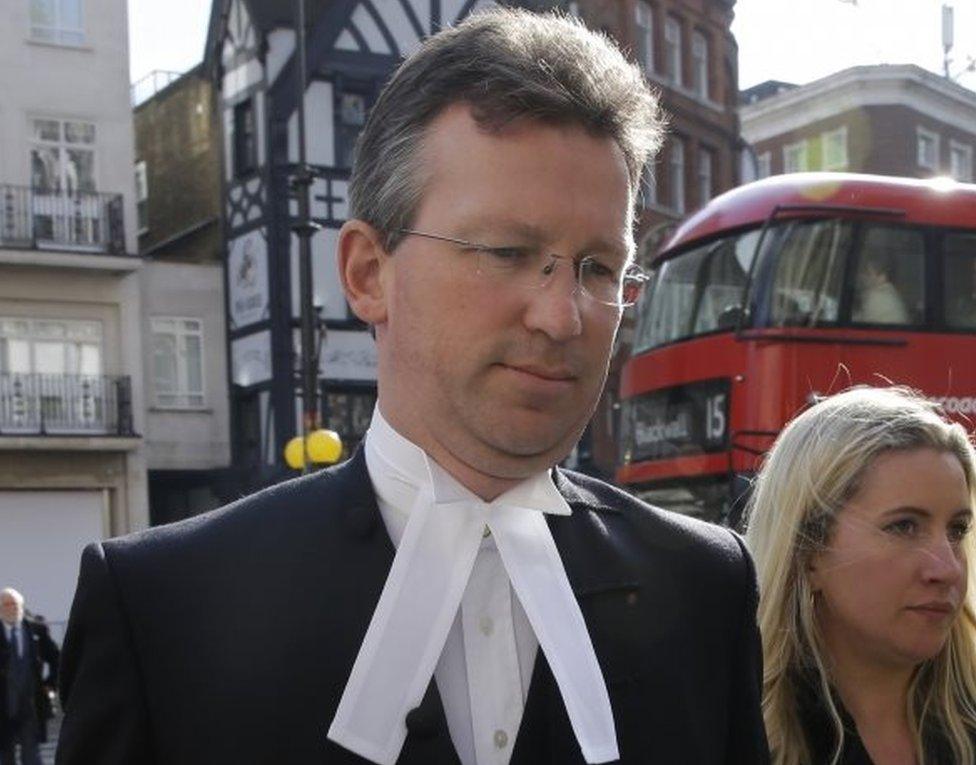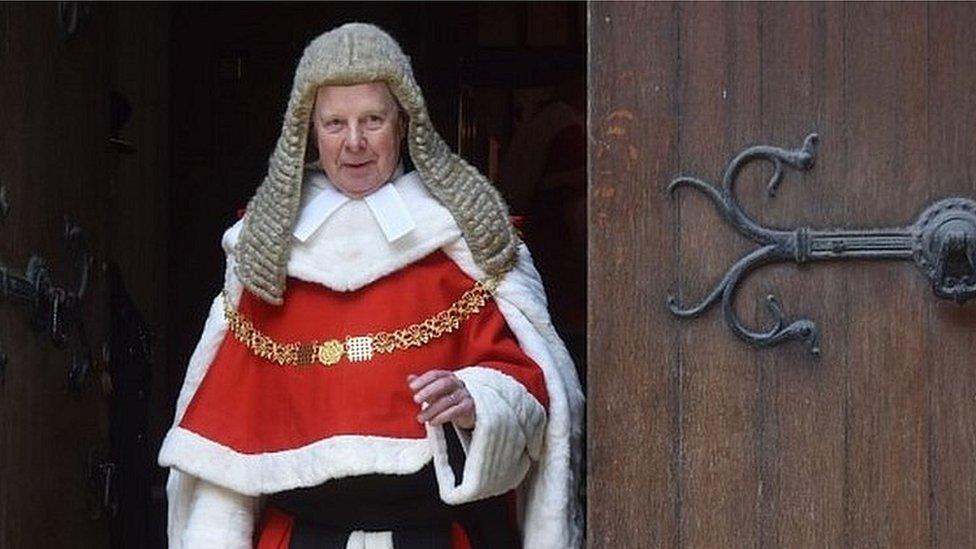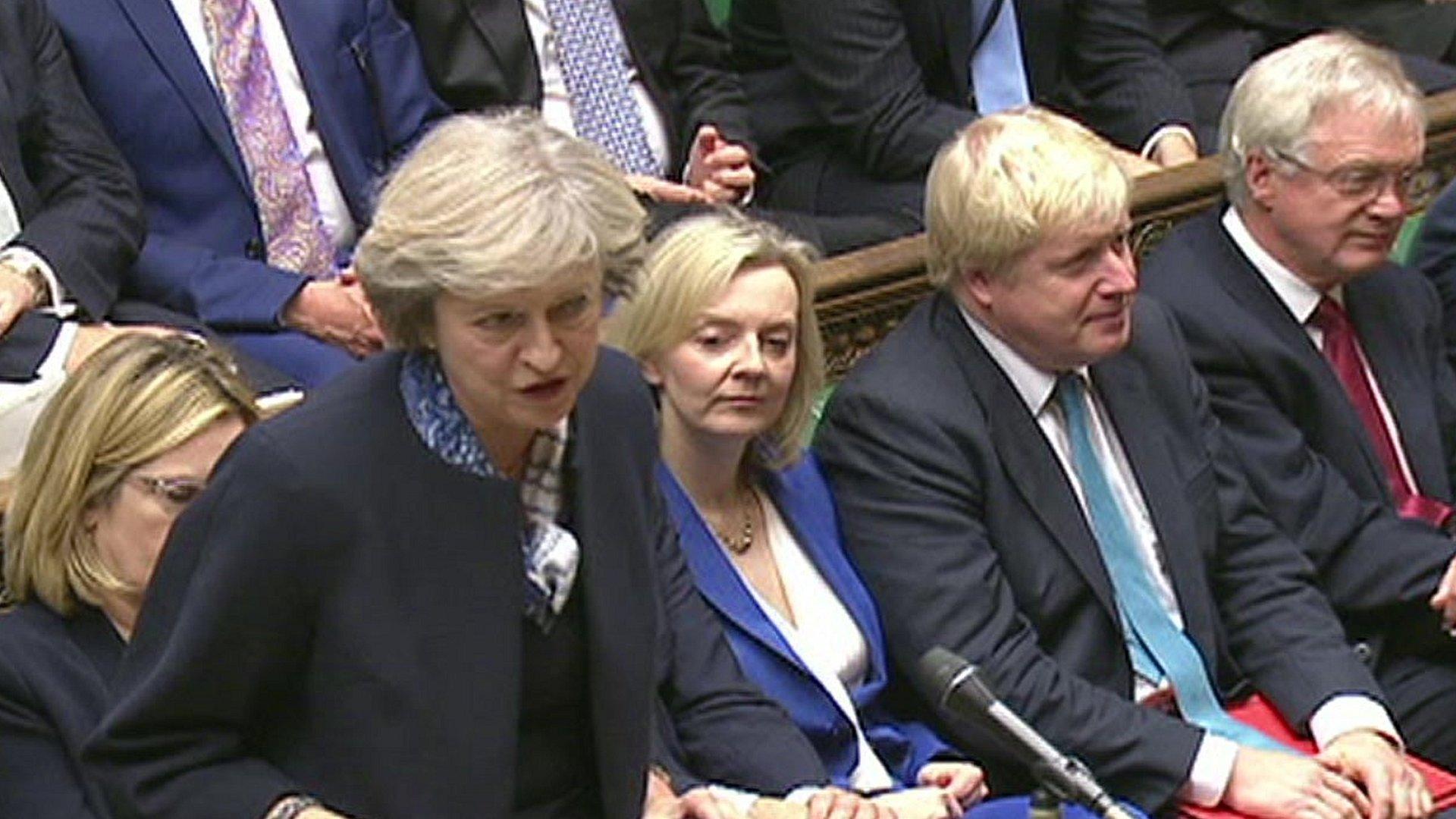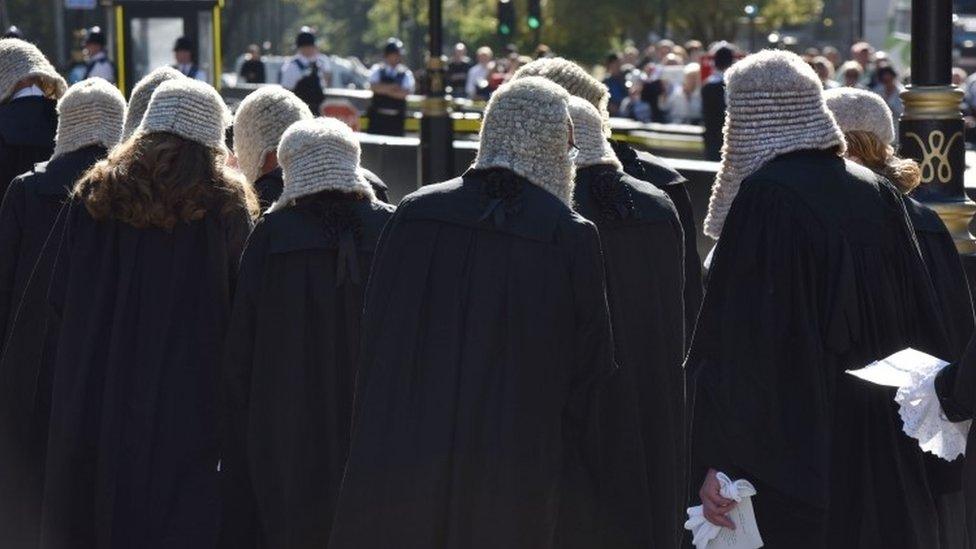MPs' consent 'not needed for Article 50 to trigger Brexit'
- Published

Consent from Parliament is "not required" for Theresa May to go ahead with getting Brexit under way, the High Court has heard.
Attorney General Jeremy Wright said it was a "proper and well established" principle that governments use the royal prerogative in such cases.
But those bringing the case argue that it is vital MPs and peers get a say.
Article 50 of the Lisbon Treaty, which starts the Brexit process, is to be triggered by the end of next March.
Campaigners say the prime minister lacks the power to do this without the prior authorisation of Parliament.
But, arguing the government's case, Mr Wright said Article 50 was available to "to give effect to the will of the people", as expressed in June's referendum, in which a majority of voters backed Brexit.
The use of the royal prerogative - powers historically held by the Crown but these days passed on to ministers - was "wholly within the expectation of Parliament", he said. Parliament had also passed an act allowing the referendum to take place, he added.

Jeremy Wright said the PM had full authority to trigger Article 50 without Parliament giving her permission
The attorney general said the "notification - once given - will not be withdrawn. It is our case that Parliament's consent is not required".
James Eadie QC, also representing the government, said the case had "profound constitutional implications and profound political implications".
He added: "It also raises a series of questions about how the British constitution should react in unique circumstances that concern the court and confront the country at this time."
Mr Eadie said there was no written, constitutional formula and that the claimants in court wanted to use legal principles developed in different constitutional and legal circumstances to make them fit their argument - "precisely denying the constitutional flexibility that lies at the heart of our constitution".
Mrs May announced at the Conservative Party conference that she intended giving an Article 50 notification by the end of March 2017 using the royal prerogative.
Her opponents argue this would unlawfully remove statutory rights granted to UK citizens under the European Communities Act 1972, which made EU law part of UK law.
Because of the urgency and constitutional importance of the case, any appeal is expected to be heard by the Supreme Court, the highest court in the land, before the end of the year.
One of the judges, Lord Thomas, has hit out at people who have threatened investment fund manager Gina Miller, one of the organisers of the challenge to the government, with abusive emails and "other communications".
The three-day hearing ends on Tuesday.
- Published13 October 2016

- Published13 October 2016

- Published12 October 2016

- Published12 October 2016

- Published12 October 2016